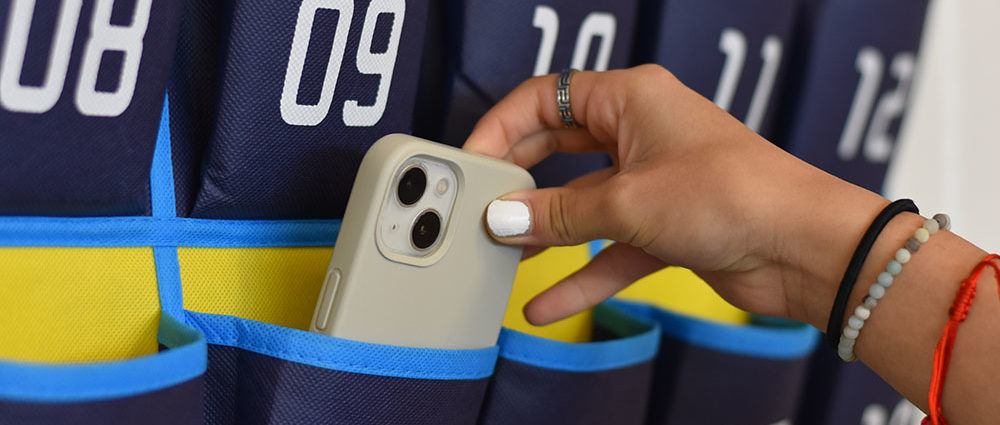The digital age has given birth to attention challenges in the classroom. This year, the county decided to make a change.
Fairfax County Public Schools has implemented a new policy on cell phone use during the school day. Students must keep phones “silenced and put away during all instructional periods,” according to the FCPS website.
English teacher Paul Fauteux said he had a similar personal policy last year, but students are more accepting of the rule now that it is part of the Student Rights and Responsibilities.
“It is easier to say what cell phone rules are and have them be adhered to,” Fauteux said. “That is a positive change from last year.”
Chemistry teacher Diane Clark agreed.
“This year with the new policy, I was ecstatic,” Clark said. “Now I have something to back my policy up. It was nice to just hit the ground running this year, no questions asked—there was no, ‘Why are we doing this?’ It’s SR&R.”
Like Fauteux, Clark said she had a no-phone policy even before the FCPS change. Still, she said she has noticed an increase in student engagement this year.
“Now, is it because of no phones, or is it just because we’re back in person again and things are starting to get back to normal?” Clark asked. “I don’t know. I do know even in my senior class, the engagement is a lot higher than it was last year.”
However, Fauteux said when students have trouble with laptops dying or power strips not reaching their tables, phones are often the best—or only—solution.
“We started making exceptions to cell phone use,” Fauteux said. “And those kinds of things result in more deviation from a strict policy than there might otherwise be.”
Students like senior Henry Lewis said the policy is not always effective.
“Some people still use their phones the whole class,” Lewis said. “I think it’s just making us better at hiding them.”
Junior Isabella Barnett said she also felt conflicted.
“[The policy] keeps students from being distracted, but can be annoying at times,” Barnett said.
Part of this frustration may be due to a lack of material support, Fauteux said.
“If you look at something like the hall pass policy last year, implementing that was made kind of easy because we had access to materials,” Fauteux said. “After a couple of weeks of that, and people insisting that everybody be consistent, now the students kind of expect it.”
In contrast, the FCPS phone policy does not provide teachers with unifying materials like laminated hall passes when dealing with phone use.
Some teachers, like Clark, use phone caddies to combat this problem. Students place their electronics in the pockets on the wall at the start of class and pick them up again at the bell.
Fauteux said requiring phone caddies could improve the new policy. Still, he said he is personally uncomfortable with the idea.
“I don’t like feel comfortable taking possession of a phone,” Fauteux said. “Also, I don’t have [a phone caddy]. I’m not going to construct one. And I don’t even know where I would put it.”
Fauteux said he would not have a problem using a phone caddy if all teachers were expected to do so. He also said he would prefer if students were personally responsible for their devices and attention, instead of teachers having to enforce a strict policy.
“I always felt like there were natural consequences to not paying attention in class,” Fauteux said. “And in order for anything like this to be effective, it needs to be a culture thing, and everybody has to be on the same page.”
Fauteux said students and staff need to practice regulating their own phone use.
“I mean, I’m a human being with a phone, and I want to look at it sometimes,” Fauteux said. “But I do think that broadly, we need to practice attending to school things while we’re at school, and engaging with people. Not just because it’s good to do but because it’s something that I think we legitimately need to practice.”

